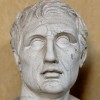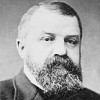Quotations about:
character
Note not all quotations have been tagged, so Search may find additional quotes on this topic.
I think you may judge of a man’s character by the persons whose affection he seeks. If you find a man seeking only the affection of those who are great, depend upon it he is ambitious and self-seeking; but when you observe that a man seeks the affection of those who can do nothing for him, but for whom he must do everything, you know that he is not seeking himself, but that pure benevolence sways his heart.
Charles Spurgeon (1834-1892) British Baptist preacher, author [Charles Haddon (C.H.) Spurgeon]
Sermon (15 Jun 1876)
(Source)
A predecessor to the sentiment usually attributed to Paul Eldridge.
Kindness consists in part, perhaps, in esteeming and loving people more than they deserve; but then there is a measure of prudence in believing that people are not always equal to what they are taken for.
[Une partie de la bonté consiste peut-être à estimer et à aimer les gens plus qu’ils ne le méritent; mais alors une partie de la prudence est de croire que les gens ne valent pas toujours ce qu’on les prise.]Joseph Joubert (1754-1824) French moralist, philosopher, essayist, poet
Pensées [Thoughts], ch. 5 “Des Passions et des Affections de l’Âme [On the Soul],” ¶ 66 (1850 ed.) [tr. Attwell (1896), ¶ 71]
(Source)
(Source (French)). Alternate translation:
A part of goodness consists, perhaps, in esteeming and loving people more than they deserve; but then a part of prudence is to believe that people are not always worth what we rate them at.
[tr. Calvert (1866), ch. 5]
Commonly truncated and paraphrased as:
A part of kindness consists in loving people more than they deserve.
[E.g. (1935)]
(Sometimes the "A part of" is left off as well.)
What is character but the determination of incident? What is incident but the illustration of character?
Henry James (1843-1916) American writer
“The Art of Fiction,” Longman’s Magazine (4 Sep 1884)
(Source)
Nothing discloses real character like the use of power. It is easy for the weak to be gentle. Most people can bear adversity. But if you wish to know what a man really is, give him power. This is the supreme test. It is the glory of Lincoln that, having almost absolute power, he never abused it, except upon the side of mercy.
Robert Green Ingersoll (1833-1899) American lawyer, agnostic, orator
“Abraham Lincoln,” Lecture (1894)
(Source)
Ingersoll used the final phrase here frequently about Lincoln, e.g., in The Liberty of Man, Woman, and Child, an 1877 lecture, he wrote: "Abraham Lincoln was, in my judgment, in many respects, the grandest man ever president of the United States. Upon his monument these words should be written: 'Here sleeps the only man in the history of the world, who, having been clothed with almost absolute power, never abused it, except on the side of mercy.'"
The phrase "But if you wish to know what a man really is, give him power" is often attributed, without citation, to Lincoln.
A man’s character is most evident by how he treats those who are not in a position either to retaliate or reciprocate.
Paul Eldridge (1888-1982) American educator, novelist, poet
“Lanterns in the Night,” Maxim 41, The Jewish Forum (Aug 1948)
Restated by Eldridge in Maxims for a Modern Man, #1198 (1965): "A man is most accurately judged by how he treats those who are not in a position either to retaliate or to reciprocate."
The same sentiment is also made or attributed to Ann Landers, Abigail Van Buren, Malcolm Forbes, James Miles, and (without any reference found) Goethe and Samuel Johnson. A more convoluted version can be found in the 19th Century by Charles Spurgeon.
More examination of this quotation:
National character is only another name for the particular form which the littleness, perversity, and baseness of mankind take in every country. If we become disgusted with one, we praise another, until we get disgusted with this too. Every nation mocks at other nations, and all are right.
[Dem Nationalcharakter wird, da er von der Menge redet, nie viel Gutes ehrlicherweise nachzurühmen sein. Vielmehr erscheint nur die menschliche Beschränktheit, Verkehrtheit und Schlechtigkeit in jedem Lande in einer andern Form und diese nennt man den Nationalcharakter. Von einem derselben degoutirt loben wir den andern, bis es uns mit ihm eben so ergangen ist. — Jede Nation spottet über die andere, und alle haben recht.]
Arthur Schopenhauer (1788-1860) German philosopher
Parerga and Paralipomena, Vol. 1, “Aphorisms on the Wisdom of Life [Aphorismen zur Lebensweisheit],” ch. 4 “Position, or a Man’s Place in the Estimation of Others [Von dem, was einer vorstellt]” (1851) [tr. Saunders (1890), 4.2]
(Source)
(Source (German)). Alternate translation:
Since national character speaks of the crowd, not much good will ever be honestly said in its favour. On the contrary, we see in a different form in each country only human meanness, perversity, and depravity, and this is called national character. Having become disgusted with one of them, we praise another until we become just as disgusted with it. Every nation ridicules the rest and all are right.
[tr. Payne (1974), ch. 4 "What a Man Represents"]
The depth and strength of a human character are defined by its moral reserves. People reveal themselves completely only when they are thrown out of the customary conditions of their life, for only then do they have to fall back on their reserves.
Leon Trotsky (1879-1940) Russian politician, Marxist, intellectual, revolutionary [b. Lev Davidovich Bronstein]
Diary in Exile, 1935-04-05 (1958)
(Source)
And I wanted someone who is absolutely and utterly powerful. It’s interesting because at the time, John Byrne had just taken over Superman and had announced that he was making Superman less powerful because he had become too powerful and you couldn’t write interesting stories about people that were too powerful. That started me thinking, “Well, no, actually you can, because what makes a person interesting or not interesting isn’t how powerful they are, but who they are.
You can easily judge the character of a man by how he treats those who can do nothing for him.
Malcolm Forbes (1919-1990) American billionaire
(Attributed)
Quoted in Earl Wilson, "Coco Offered Fatty Arbuckle Role," Hartford Courant (6 Aug 1972); earliest reference found for Forbes. A variant is found in The Sayings of Chairman Malcolm (1978): “You can easily judge the character of others by how they treat those who can do nothing for them or to them.”
The earliest version of the sentiment appears to be Paul Eldridge.
Your job today tells me nothing of your future — your use of your leisure today tells me just what your tomorrow will be.
Robert H. Jackson (1892-1954) US Supreme Court Justice (1941-54), lawyer, jurist, politician
Speech, Building Dedication, Jamestown High School, New York (1935-11-15)
(Source)
Quoted in Eugene Gerhart, America's Advocate: Robert H. Jackson, ch. 24 (1958).
HENRY: A speaker is but a prater, a rhyme is but a ballad, a good leg will fall, a straight back will stoop, a black beard will turn white, a curled pate will grow bald, a fair face will wither, a full eye will wax hollow, but a good heart, Kate, is the sun and the moon, or rather the sun and not the moon, for it shines bright and never changes but keeps his course truly. If thou would have such a one, take me.
Poetry demands a man with special gift for it, or else one with a touch of madness in him; the former can easily assume the required mood, and the latter may be actually beside himself with emotion.
[διὸ εὐφυοῦς ἡ ποιητική ἐστιν ἢ μανικοῦ: τούτων γὰρ οἱ μὲν εὔπλαστοι οἱ δὲ ἐκστατικοί εἰσιν.]
Aristotle (384-322 BC) Greek philosopher
Poetics [Περὶ ποιητικῆς, De Poetica], ch. 17 / 1455a.33 (c. 335 BC) [tr. Bywater (1909)]
(Source)
Original Greek. Fyfe (below) notes μανικός to mean "genius to madness near allied," and adds "Plato held that the only excuse for a poet was that he couldn't help it." A possible source of Seneca's "touch of madness" attribution to Aristotle. Alternate translations:
Poetry implies either a happy gift of nature or a strain of madness. In the one case a man can take the mould of any character; in the other, he is lifted out of his proper self.
[tr. Butcher (1895)]
Poetry is the work for the finely constituted or the hysterical; for the hysterical are impressionable, whereas the finely constituted are liable to outbursts.
[tr. Margoliouth (1911); whiles this seems backward, Margoliouth further explains in his footnote.]
Poetry needs either a sympathetic nature or a madman, the former being impressionable and the latter inspired.
[tr. Fyfe (1932)]
Hence the poetic art belongs either to a naturally gifted person or an insane one, since those of the former sort are easily adaptable and the latter are out of their senses.
[tr. Sachs (2006)]
In order to write tragic poetry, you must be either a genius who can adapt himself to anything, or a madman who lets himself get carried away.
[tr. Kenny (2013)]
We are, in truth, more than half what we are by imitation. The great point is, to choose good models and to study them with care.
Lord Chesterfield (1694-1773) English statesman, wit [Philip Dormer Stanhope]
Letter to his son, #214 (18 Jan 1750)
(Source)
Your friend is the man who knows all about you, and still likes you.
Elbert Hubbard (1856-1915) American writer, businessman, philosopher
A Thousand and One Epigrams (1911)
(Source)
Reprinted in The Notebook of Elbert Hubbard (1927).
The hell to be endured hereafter, of which theology tells, is no worse than the hell we make for ourselves in this world by habitually fashioning our characters in the wrong way. Could the young but realize how soon they will become mere walking bundles of habits, they would give more heed to their conduct while in the plastic state. We are spinning our own fates, good or evil. Every smallest stroke of virtue or of vice leaves its never so little scar.
William James (1842-1910) American psychologist and philosopher
The Principles of Psychology, Vol. 1, ch. 4 “Habit” (1890)
(Source)
This chapter originally published in Popular Science Monthly (Feb 1887).
I think it behooves us to treat our characters’ beliefs with some measure of respect, whatever he believes in. I mean I’m an atheist myself, but I don’t have to believe in Minbari to write about Minbari. I think if that person is a religious character, then you have to treat them with integrity and deal with them properly.
J. Michael (Joe) Straczynski (b. 1954) American screenwriter, producer, author [a/k/a "JMS"]
Panel Discussion, MIT, Cambridge, Massachusetts (4 May 1998)
(Source)
Every good human quality is related to a bad one into which it threatens to pass over; and every bad quality is similarly related to a good one. The reason we so often misunderstand people is that when we first make their acquaintance we mistake their bad qualities for the related good ones, or vice versa: thus a prudent man will seem cowardly, a thrifty one avaricious; or a spendthrift will seem liberal, a boor frank and straightforward, an impudent fellow full of noble self-confidence, and so on.
[Jede menschliche Vollkommenheit ist einem Fehler verwandt, in welchen überzugehn sie droht; jedoch auch, umgekehrt, jeder Fehler, einer Vollkommenheit. Daher beruht der Irrthum, in welchen wir, hinsichtlich eines Menschen, gerathen, oft darauf, daß wir, im Anfang der Bekanntschaft, seine Fehler mit den ihnen verwandten Vollkommenheiten verwechseln, oder auch umgekehrt: da scheint uns dann der Vorsichtige feige, der Sparsame geizig; oder auch der Verschwender liberal, der Grobian gerade und aufrichtig, der Dummdreiste als mit edelem Selbstvertrauen auftretend, u. dgl. m]
Arthur Schopenhauer (1788-1860) German philosopher
Parerga and Paralipomena, Vol. 2, ch. 8 “On Ethics [Zur Ethik],” § 113 (1851) [tr. Hollingdale (1970)]
(Source)
(Source (German)). Alternate translation:
Every human perfection is allied to a defect into which it threatens to pass; but it is also true that every defect is allied to a perfection. Hence it is that if, as often happens, we make a mistake about a man, it is because at the beginning of our acquaintance with him we confound his defects with the kinds of perfection to which the are allied. The cautious man seems to us a coward; the economical man, a miser; the spendthrift seems liberal; the rude fellow, downright and sincere; the foolhardy person looks as if he were going to work with a noble self-confidence, and so on in many other case.
[tr. Saunders (1890), "On Human Nature"]
Every human perfection is akin to a fault into which it threatens to pass; conversely, however, every fault is akin to a perfection. And so the error into which we fall in respect of a man is often due to the fact that, at the beginning of our acquaintance, we confuse his faults with the perfections akin to them, or vice versa. The cautious man then seems to us to be cowardly, the thrifty to be avaricious; or again, the spendthrift appears to be liberal, the lout straightforward and sincere, the foolhardy to be endowed with noble self-confidence, and so on.
[tr. Payne (1974)]
Every human perfection is linked to an error which it threatens to turn into.
[Source]
Times of trouble best discover the true worth of a man; they do not weaken him, but show his true nature.
[Quantas autem virtutes quisque fecerit, melius patet occasione adversitatis. Occasiones namque hominem fragilem non faciunt, sed qualis sit, ostendunt.]
Thomas à Kempis (c. 1380-1471) German-Dutch priest, author
The Imitation of Christ [De Imitatione Christi], Book 1, ch. 16, v. 4 (1.16.4) (c. 1418-27) [tr. Sherley-Price (1952)]
(Source)
(Source (Latin)). Alternate translations:
Who is of most virtue appeareth best in time of adversity. Occasions make not a man frail, but they shew openly what he is.
[tr. Whitford/Raynal (1530/1871)]
The time of adversity shows who is of most virtue. Occasions do not make a man frail, but they do show openly what he is.
[tr. Whitford/Gardiner (1530/1955)]
By occasion of adversity every man knoweth what great vertue is in himselfe, for such occasions make thee not frail, but shew thee what thou art.
[tr. Page (1639), 1.16.14]
Besides we shall do well to reflect, that Afflictions and uneasy Accidents are the clearest Indication of a Man's Goodness, and the Degrees of his Improvement. For we mistake extremely in imagining that any thing which happens to us from without, is the real Cause of our doing well or ill; Adversity does not make Virtue or Vice, but exert and draw them into Practice; it does not change the Man from what he was, but only discover what he really is.
[tr. Stanhope (1696; 1706 ed.)]
Besides, by outward occasions of suffering from the conduct of others, the nature and degree of every man's inward strength is more plainly discovered; for outward occasions do not make him frail, but only shew him what he is in himself.
[tr. Payne (1803)]
Occasions of adversity best discover how great virtue or strength each one hath. For occasions do not make a man frail, but they shew what he is.
[ed. Parker (1841)]
Besides, adversity better displays the fortitude and virtues that we possess: for these attacks to not contribute to make us frail, but rather shew us to be what we are.
[tr. Dibdin (1851)]
The amount of a man's virtue is best seen in presence of adversity, for its occurrence does not make a man weak, but shows what he is.
[ed. Bagster (1860)]
How much strength each man hath is best proved by occasions of adversity: for such occasions do not make a man frail, but show of what temper he is.
[tr. Benham (1874)]
Occasions of adversity soonest discover how great virtue or strength each one hath. For occasions do not make a man frail, but they shew what he is.
[tr. Anon. (1901)]
For the measure of every man's virtue is best revealed in time of adversity -- adversity that does not weaken a man but rather shows what he is.
[tr. Croft/Bolton (1940)]
For the strength that each has will best be seen in the hour of adversity. Because such hours do not make a man weak, but show what kind of man he is.
[tr. Daplyn (1952)]
Meanwhile, there is no better test of a man's quality than when he cannot have things his own way. The occasions of sin do not overpower us, they only prove our worth.
[tr. Knox-Oakley (1959)]
A man’s true quality is revealed when things are difficult. Events do not make a man weak -- they only show what stuff he is made of.
[tr. Knott (1962)]
The strength of one’s virtue is seen more easily when opposition comes. For such opposition does not weaken a man, but shows his mettle.
[tr. Rooney (1979)]
For the strength that each person has will best be seen in times of trouble. Such times do not make us weak; they show what we are.
[tr. Creasy (1989)]
To be thoroughly good-natured, and yet avoid being imposed upon, shows great strength ov character.
Josh Billings (1818-1885) American humorist, aphorist [pseud. of Henry Wheeler Shaw]
Everybody’s Friend, Or; Josh Billing’s Encyclopedia and Proverbial Philosophy of Wit and Humor, ch. 157 “Affurisms: Hot Korn” (1874)
(Source)
He was a one-book man. Some men have only one book in them; others, a library.
Sydney Smith (1771-1845) English clergyman, essayist, wit
Memoir of the Reverend Sydney Smith, by His Daughter, Lady Holland, Vol. 1, ch. 11 (1855)
(Source)
God’s merits are so transcendent that it is not surprising his faults should be in reasonable proportion.
Samuel Butler (1835-1902) English novelist, satirist, scholar
The Note-Books of Samuel Butler, “Rebelliousness”(1912)
Full text.
Moral cowardice that keeps us from speaking our minds is as dangerous to this country as irresponsible talk. The right way is not always the popular and easy way. Standing for right when it is unpopular is a true test of moral character.
‘A good heart will help you to a bonny face, my lad,’ I continued, ‘if you were a regular black; and a bad one will turn the bonniest into something worse than ugly.’
Emily Brontë (1818-1848) British novelist, poet [pseud. Ellis Bell]
Wuthering Heights, ch. 7 [Nelly to Heathcliff] (1847)
Full text.
What a man believes may be ascertained, not from his creed, but from the assumptions on which habitually acts.
George Bernard Shaw (1856-1950) British playwright and critic
Man and Superman, “The Revolutionist’s Handbook,” “Religion” (1903)
(Source)
The man of honor thinks of his character, the inferior man of his position. The man of honor desires justice, the inferior man favor.
[君子懷德、小人懷土、君子懷刑、小人懷惠。]
Confucius (c. 551- c. 479 BC) Chinese philosopher, sage, politician [孔夫子 (Kǒng Fūzǐ, K'ung Fu-tzu, K'ung Fu Tse), 孔子 (Kǒngzǐ, Chungni), 孔丘 (Kǒng Qiū, K'ung Ch'iu)]
The Analects [論語, 论语, Lúnyǔ], Book 4, verse 11 (4.11) (6th C. BC – AD 3rd C.) [tr. Soothill (1910)]
(Source)
(Source (Chinese)). Alternate translations:
The superior man thinks of virtue; the small man thinks of comfort. The superior man thinks of the sanctions of law; the small man thinks of favours which he may receive.
[tr. Legge (1861)]
The masterly man has an eye to virtue, the common man, to earthly things; the former has an eye to penalties (for error), the latter, to favour.
[tr. Jennings (1895)]
A wise man regards the moral worth of a man; a fool, only his position. A wise man expects justice; a fool expects favours.
[tr. Ku Hung-Ming (1898)]
The proper man is concerned with examining his consciousness and acting on it, the small man is concerned about land; the superior man about legality, the small man about favors.
[tr. Pound (1933)]
Where gentlemen set their hearts upon moral force (tê), the commoners set theirs upon the soil. Where gentlemen think only of punishments, the commoners think only of exceptions.
[tr. Waley (1938)]
The perfect gentleman cherishes high moral conduct; the mean man, well-being. The perfect gentleman cherishes the penal code; the mean man, ex¬ emptions therefrom.
[tr. Ware (1950)]
While the gentleman cherishes benign rule, the small man cherishes his native land. While the gentleman cherishes a respect for the law, the small man cherishes generous treatment.
[tr. Lau (1979)]
The gentleman cherishes virtue, but the small man cherishes the soil; the gentleman cherishes the rigors of the law, but the small man cherishes leniency.
[tr. Dawson (1993)]
A gentleman seeks virtue; a small man seeks land. A gentleman seeks justice; a small man seeks favors.
[tr. Leys (1997)]
The gentleman cherishes virtue; the small man cherishes land. The gentleman cherishes institutions; the small man cherishes favors.
[tr. Huang (1997)]
The gentlemen are concerned about the virtuousness; the mean persons are concerned about the land. The gentlemen are concerned about the status; the mean persons are concerned about the benefit.
[tr. Cai/Yu (1998), #77]
Exemplary persons (junzi) cherish their excellence; petty persons cherish their land. Exemplary persons cherish fairness; petty persons cherish the thought of gain.
[tr. Ames/Rosemont (1998)]
The gentleman likes virtue; the little man likes partiality. The gentleman likes justice; the little man likes mercy.
[tr. Brooks/Brooks (1998)]
while the noble-minded cherish integrity, little people cherish territory. And while the noble-minded cherish laws, little people cherish privilege.
[tr. Hinton (1998)]
The gentleman cherishes virtue, whereas the petty person cherishes physical possessions. The gentleman thinks about punishments, whereas the petty person thinks about exemptions.
[tr. Slingerland (2003)]
The gentleman has his mind fixed on virtue; the petty man has his mind fixed on land. The gentleman has his mind fixed on penalties; the petty man has his mind fixed on bounty.
[tr. Watson (2007)]
The gentleman [junzi] worries about the condition of his moral character, while the common man [xiaoren] worries about [whether he can hold on to] his land. The gentleman is conscious of [not breaking] the law, while the common man is conscious of what benefits he might reap [from the state].
[tr. Chin (2014)]
A Jun Zi cares about virtuous and righteous principles, whereas a Xiao Ren cares about worldly matters. A Jun Zi cares about rules and discipline, whereas a Xiao Ren cares about benefits.
[tr. Li (2020)]
The superior man seeks what is right; the inferior one, what is profitable.
[Source]
The proper use of embarrassment is as a conscience of manners. As your conscience might trouble you if you do anything immoral, your sense of embarrassment should be activated if you do anything unmannerly. As conscience should come from within, so should embarrassment. Hot tingles and flushes are quite proper when they arise from your own sense of having violated your own standards, inadvertently or advertently, but Miss Manners hereby absolves everyone from feeling any embarrassment deliberately imposed by others.
Judith Martin (b. 1938) American author, journalist, etiquette expert [a.k.a. Miss Manners]
Miss Manners’ Guide to Excruciatingly Correct Behavior, Introduction (1983)
(Source)
Character is what you are in the dark.
Dwight Lyman "D. L." Moody (1837-1899) American evangelist and publisher
Sermon
Attributed by his son in William R. Moody, D. L. Moody, ch. 66 (1930), but quoted without citation before that (e.g., in Saint Andrew's Cross (Nov 1907), and The Outlook (6 Jun 1917)).
To know a man, observe how he wins his object, rather than how he loses it; for when we fail, our pride supports us; when we succeed, it betrays us.
Charles Caleb "C. C." Colton (1780-1832) English cleric, writer, aphorist
Lacon: Or, Many Things in Few Words, Vol. 1, § 265 (1820)
(Source)
Human beings reveal their character most clearly by what they find ridiculous.
[Durch nichts bezeichnen die Menschen mehr ihren Charakter als durch das, was sie lächerlich finden.]
Johann Wolfgang von Goethe (1749-1832) German poet, statesman, scientist
Elective Affinities [Die Wahlverwandtschaften], Part 2, ch. 4, “From Ottilie’s Journal [Aus Ottiliens Tagebuche]” (1809) [tr. Hollingdale (1971)]
(Source)
(Source (German)). Alternate translation:
There is nothing in which people more betray their character than in what they find to laugh at.
[Niles ed. (1872)]
Men show their characters in nothing more clearly than in what they think laughable.
[Source]
For an opposite perspective, see Lichtenberg.
The best index to a person’s character is (a) how he treats people who can’t do him any good, and (b) how he treats people who can’t fight back.
Abigail Van Buren (1918-2013) American columnist [a.k.a. Dear Abby, pen name for Pauline Phillips]
“Dear Abby” column (16 May 1974)
The earliest variation on this thought appears to be from Paul Eldridge.
Never judge someone by who he’s in love with; judge him by his friends. People fall in love with the most appalling people. Take a cool, appraising glance at his pals.
Cynthia Heimel (1947-2018) American feminist, humorist, writer
But Enough about You (1986)
(Source)
A "Sister Soignée" quote.
Do I contradict myself?
Very well then I contradict myself,
(I am large, I contain multitudes.)Walt Whitman (1819-1892) American poet
“Song of Myself,” sec. 51, ll. 1324-26, Leaves of Grass, Book 3 (1855)
(Source)
There are also conflicts about important things or ideas. In such cases I am more impressed by the extreme importance of being on the right side, than I am disturbed by the revelation of the jungle of confused motives, private purposes, and individual actions (noble or base) in which the right and the wrong in actual human conflicts are commonly involved.
J.R.R. Tolkien (1892-1973) English writer, fabulist, philologist, academic [John Ronald Reuel Tolkien]
Notes on W. H. Auden’s review of Return of the King (1956)
(Source)
Auden's review: "At the End of the Quest, Victory," New York Times Book Review (1956-01-22).
Tolkien never sent or shared these notes. Reprinted in Humphrey Carpenter, ed., The Letters of J.R.R. Tolkien, #183 (1981).
DUKE: O, what may man within him hide,
Though angel on the outward side!William Shakespeare (1564-1616) English dramatist and poet
Measure for Measure, Act 3, sc. 2, l. 271ff (3.2.271-272) (1604)
(Source)
LORENZO: The man that hath no music in himself,
Nor is not moved with concord of sweet sounds,
Is fit for treasons, stratagems, and spoils;
The motions of his spirit are dull as night,
And his affections dark as Erebus.
Let no such man be trusted. Mark the music.William Shakespeare (1564-1616) English dramatist and poet
Merchant of Venice, Act 5, sc. 1, l. 92ff (5.1.92-97) (1597)
(Source)
ANTONIO: In nature there’s no blemish but the mind;
None can be called deformed but the unkind.William Shakespeare (1564-1616) English dramatist and poet
Twelfth Night, Act 3, sc. 4, l. 386ff (3.4.386-387) (1601)
(Source)










































